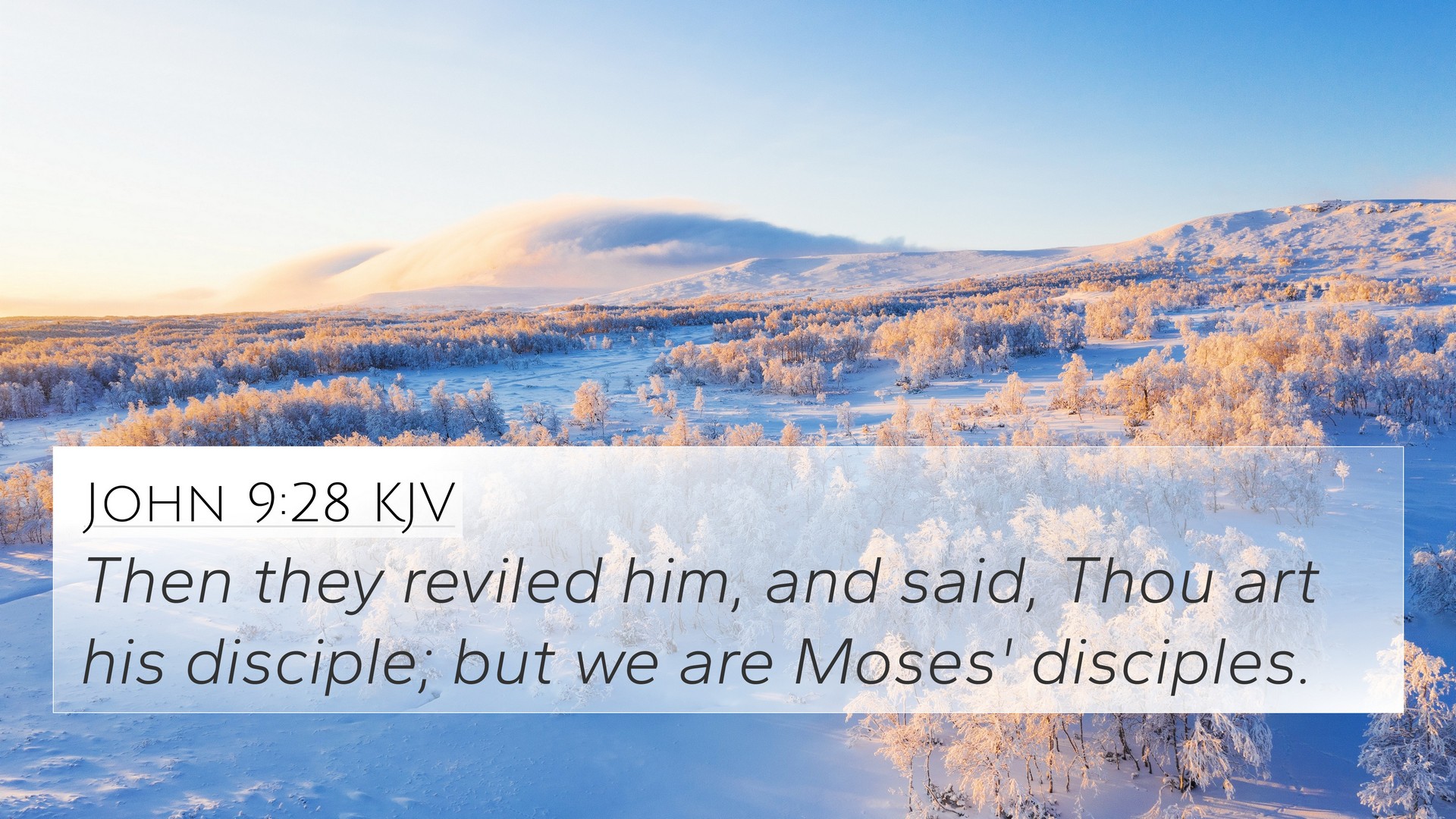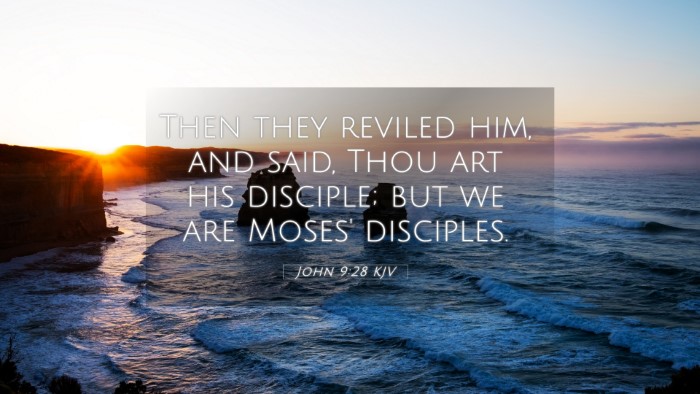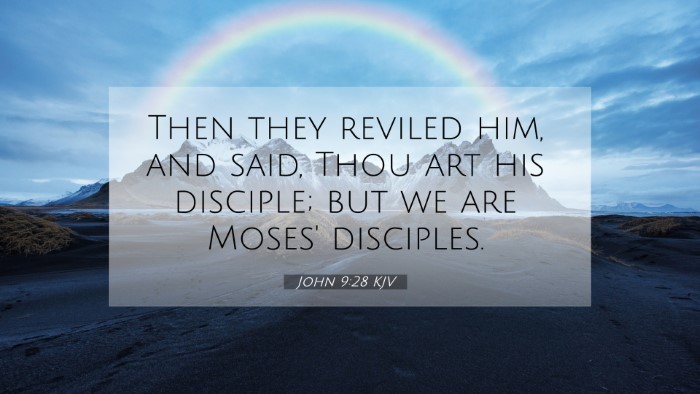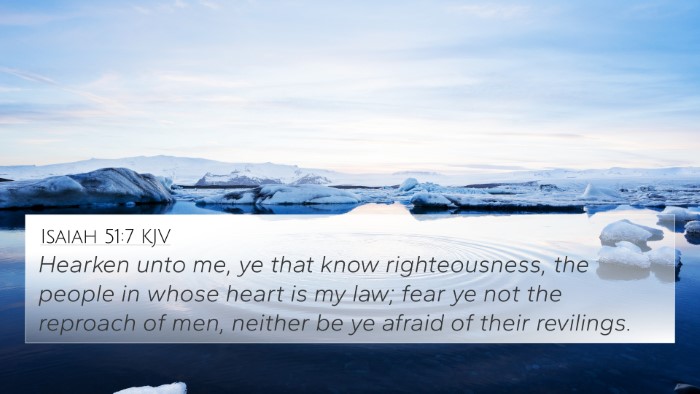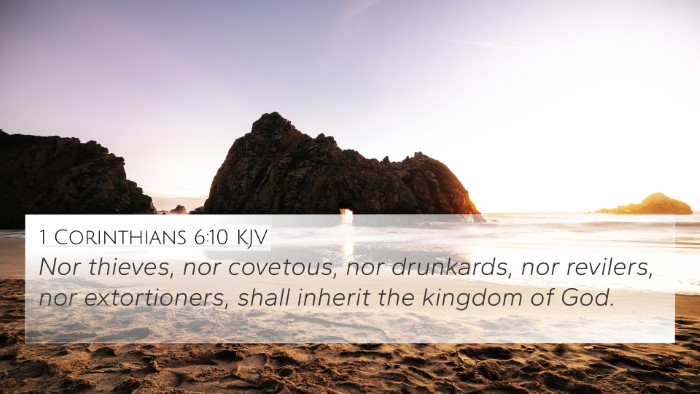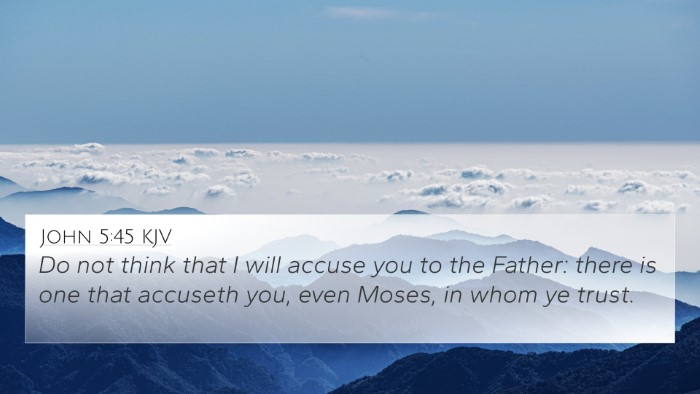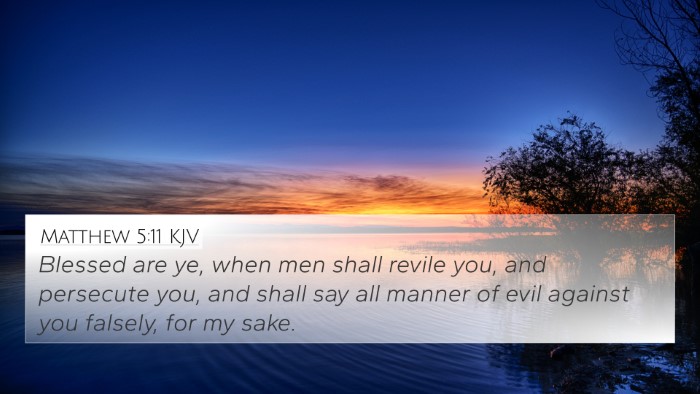Understanding John 9:28
John 9:28 states, "And they reviled him, and said, Thou art his disciple; but we are Moses' disciples." This verse comes from the account of Jesus healing a man born blind, which sets the stage for a deeper exploration of faith and religious authority. The verse reveals the tension between the blind man's testimony and the religious leaders' refusal to acknowledge it.
Commentary Insights
The insights from public domain commentaries provide a layered understanding of this verse.
- Matthew Henry emphasizes the inconsistency and hypocrisy of the Pharisees. He notes how they revile the healed man by disparaging his allegiance to Jesus, while claiming superiority as followers of Moses.
- Albert Barnes discusses the implications of calling oneself a disciple of Moses. According to Barnes, this claim indicates a blind adherence to the Law, contrasting sharply with the faith the healed man demonstrates in Jesus.
- Adam Clarke highlights the complexities in the religious leaders' rejection of the man’s testimony. He points to their fear of losing influence and authority should they accept Jesus as the Messiah.
Key Themes of John 9:28
Several profound themes emerge from this verse:
- Religious Authority vs. Personal Faith: The Pharisees prioritize tradition and authority over genuine faith and testimony.
- Blindness and Sight: The physical and spiritual blindness of the Pharisees contrasts with the sight received by the healed blind man.
- Truth and Revilement: Speaking truth can result in disparagement, as shown by the Pharisees' response to the man’s healing.
Bible Verse Cross-References
John 9:28 can be cross-referenced with several other scripture passages that emphasize these themes. Here are notable connections:
- John 8:33-34: The Jews claim descent from Abraham, mirroring their pride in Moses and rejection of Jesus.
- Exodus 32:26: References to being on the Lord's side reflect the choice between divine authority and human tradition.
- Matthew 15:14: Jesus warns about the blind leading the blind, connecting to the spiritually blind leaders in John 9.
- Acts 4:19-20: Apostles face similar revilement but remain steadfast in their testimony of Jesus.
- Romans 10:2-3: Paul discusses zeal for God alongside ignorance of God's righteousness—echoing the Pharisees' approach.
- John 3:36: The imperative of belief in the Son establishes a clear point of contention with the Pharisees.
- Luke 16:15: Jesus critiques the Pharisees for justifying themselves before men instead of God.
Comparative Analysis and Thematic Connections
This verse fosters comparative Bible verse analysis as it exhibits various connecting threads throughout scripture:
- Discipleship is a recurring theme—who one chooses to follow matters deeply in both the Old and New Testaments.
- The interplay between faith and legalism, especially evident in Pauline epistles, can be understood through the lens of this confrontation.
- The resulting tension between authority and personal belief is pivotal in understanding the overarching storyline of redemption.
Tools for Bible Cross-Referencing
To further explore these themes and connections, the following tools can be beneficial:
- Bible Concordance: To find words and themes throughout scripture efficiently.
- Bible Cross-Reference Guide: A resource for linking related verses and themes.
- Cross-Reference Bible Study: Methods and resources to help engage deeper meanings.
User Intent and Related Queries
Understanding user intent is vital for those seeking deeper insights, such as:
- What verses are related to John 9:28? Understanding the connections helps contextualize theological themes.
- How do other verses connect with the themes of sight and blindness? Engaging in thematic Bible verse connections provides a richer understanding.
- Find cross-references for the healed man in John 9: Identifying these helps interpret his significance in the narrative.
Conclusion
John 9:28 invites readers into a deeper exploration of faith, authority, and the often adversarial relationship between truth and tradition. It stands as a testament to the importance of authentic discipleship and the pursuit of understanding through scripture. By utilizing the given tools and engaging in cross-referencing biblical texts, one can uncover a more profound spiritual narrative that resonates throughout the entirety of the Bible.
